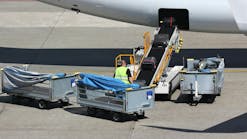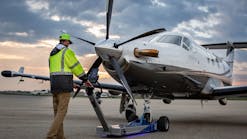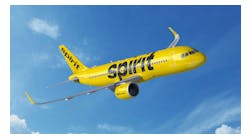Thanks to expansion of Statesville Regional Airport, Iredell County and city officials expect a long-term commercial development boom along U.S. 70 and Interstate 40, west to Old Mountain Road and north to U.S. 64.
Because of that, the county commission and city council decided to increase the size of new sewer lines at the airport to accommodate growth.
"That's just good planning, because you don't want to go back and build another sewer line," City Manager Rob Hites said.
Iredell and Statesville split the $1.54 million cost of the sewer extension. Upgrading the line width from 12 inches to 15 inches cost about $44,000. That's a better deal than paying another $1.5 million to design and dig larger lines in the future, Hites said.
Sewer itself often drives growth, because it enables denser, larger developments and industrial uses.
"We've had lots of activity and inquiries about the airport expansion," said Jeff McKay, executive director of Greater Statesville Development Corp. "Long-term, the infrastructure to the airport will play an equally important role itself."
With the aid of gravity, the larger pipes can feed future sewer extensions between the Third, Fourth and Back creek basins in that area.
"We do expect that corridor to completely change over time," Hites said. "It's rural right now and agricultural, but it probably won't be in 20 years."
As the airport expands, businesses that have fleets there or that serve aviation will want light manufacturing and office space near it, said county Commissioner Steve Johnson, who also is a member of the city's airport commission.
"Early on, they were going to use septic tanks to serve occupants at the airfield," he said. "And I thought, 'That's really dumb. You're going to eat up valuable real estate putting septic tanks out there. Let's put in sewer and park some expensive planes out there.' "
The more the airport can encourage related development, the more the county's and city's tax bases increase, he said.
A decision by Lowe's Cos. Inc. to locate its corporate fleet at the airport, following the company's headquarters relocation from the Wilkesboro area to Mount Mourne, is driving the runway extension, landing equipment upgrades and the sewer connections.
Environmental regulations require new tenants to treat all the washdown, or runoff, from plane cleaning. Pumping that washdown from the airport to an offsite sewer plant was not the best option for the company, Lowe's vice president for administration Ames Flynn said.
Until the sewer is completed in about 60 to 90 days, Lowe's is pumping and hauling away its wastewater for treatment. If sewer was not being added to the airport, the company would not have brought its fleet there and could have parked at the Concord airport, Flynn said.
Lowe's fleet and the hangar it built are worth about $120 million to the city and county tax bases.
As Lowe's contemplated Statesville, the city realized that other washdown bays would need to be moved from septic to sewer over time, Hites said. Also, the soil in the area around the airport "doesn't perk well for growth," he said. With the new lines, as the area grows, residents with failing septic systems could hook onto the airport sewer lines.




